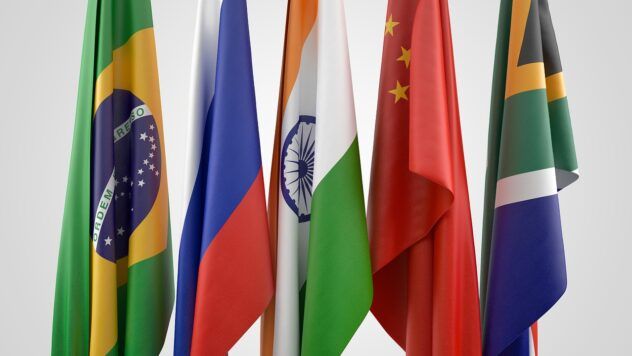
On July 6, 2025, the 17th BRICS summit began in Rio de Janeiro. Representatives of the participating countries are discussing key issues in global politics. Some countries delegated ministers, and the leaders of China and Russia did not arrive in Brazil — Vladimir Putin joined the meeting via video link.
Chinese President Xi Jinping skipped the summit for the first time since he came to power in 2012, citing a busy work schedule. Instead, China will be represented at the meeting by State Council Premier Li Qiang.
The Russian president also did not arrive in Rio de Janeiro, as he faces arrest there under a warrant from the International Criminal Court, whose jurisdiction Brazil recognizes. The Russian delegation is headed by Foreign Minister Sergei Lavrov.
Now watching
The two-day summit is expected to address the conflict between Israel and Iran, the humanitarian crisis in Gaza, and trade tariffs imposed by the US president.
US President Donald Trump July 6 said that countries that adhere to an anti-American course within the BRICS association may face additional duties of 10%. He reported this in his note on the Truth Social platform.
BRICS is an informal name for a community of large developing countries. What is known about the group, what its goals are and what place Russia occupies in BRICS – read in the ICTV Fakty material.
What is BRICS – what is known about the organization
BRICS is not an international organization, union or trade bloc. The group does not have a charter, founding treaty or anything similar. According to The BBC, during the BRICS summit that was held earlier in South Africa, talked about institutionalising the group, but there is no documentary evidence of this yet.
BRICS has been described as a G7 or G20-like club of countries unhappy with Western “dominance.” The group was created to “reform international financial institutions to improve the representation of developing countries.”
The BRICS countries became the founders of the New Development Bank (NBD) with capital of $250 billion for investments in developing countries. The bank was joined by other participants that were not yet part of BRICS at the time of their accession, including Egypt and the UAE.
The BRICS countries are considered a large and very diverse market with riskier but also more profitable investments than the developed world market. China is considered to be the leader among the countries participating in the group.
Which countries are part of BRICS?
Initially, BRICS included Brazil, Russia, India and China, and later South Africa joined them.
In August 2023, South African President Cyril Ramaphosa announced that Argentina, Iran, Saudi Arabia, Egypt, Ethiopia and the UAE had been invited to join BRICS from 1 January 2024.
Following the victory of Javier Miley in the presidential elections in Argentina, official Buenos Aires refused to join the BRICS group.
As of 2025, the group includes the following countries: Egypt, Ethiopia, Iran, the United Arab Emirates, Saudi Arabia, Russia, India, China and South Africa, Indonesia and Brazil.
What are the goals of BRICS and what is Russia's place in the group?
“China has become a 'big fish', and through BRICS it is creating an image for itself as the leading voice of the Global South, pushing for reform or overthrow of the current world order,” says Professor Padraig Carmody, a development geographer at the College of St Queen Elizabeth and Trinity near Dublin.
At the same time, India competes with China in the Asia-Pacific region and cooperates with the United States to counter Beijing's influence.
Russia is considered an outsider in BRICS in terms of its economic prospects. The Russian economy remains a raw materials economy, which determines its dependence on the current situation on world markets.
Russia sees BRICS as part of its fight against the West, and as a mechanism to help it cope with sanctions for its invasion of Ukraine, says Creon Butler, director of the global economy and finance program at the Chatham House think tank. But not all members of the group support the idea of BRICS becoming an overt player against the West.
“South Africa, Brazil and India do not want a divided world; confrontation with the West is not beneficial for their security and prosperity,” says Butler.

